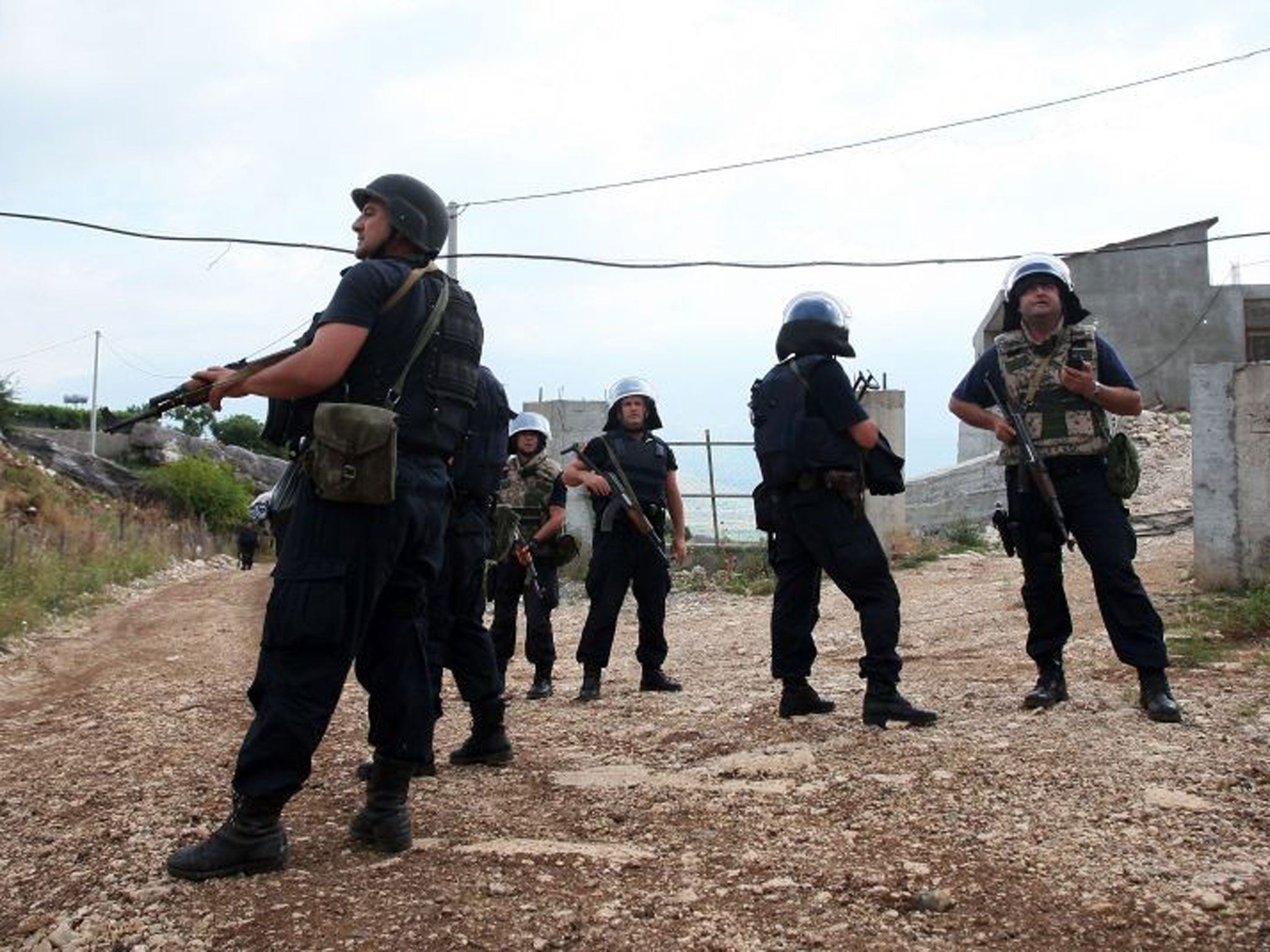Albanian police burn crops and continue assault on Europe's marijuana capital
Lazarat is believed to produce about 900 metric tons of cannabis a year, worth some 4.5 billion euros

Plumes of pungent smoke rise above the small but prosperous southern Albanian village of Lazarat, while gunfire and the occasional rocket-propelled grenade or even mortar greet the police advance.
This time, the country's authorities have vowed not to leave until the job is done: ridding Lazarat of drug gangs that have turned the village into Europe's largest illegal marijuana producer. Until 10 years ago, Lazarat was a regular farming community; now it rakes in billions of euros every year from the plants openly cultivated in fields and house gardens.
Set in a green plain overlooked by high hills, this sprawling southern village of 5,000 is believed to produce about 900 metric tons of cannabis a year, worth some 4.5 billion euros ($6.1 billion) — just under half of the small Balkan country's GDP.
Albanian authorities aggressive drug eradication effort in countryside
Show all 15The lucrative business has left its mark. Today flashy cars and expensive homes dot the village, where many residents were left unemployed after the political purges that followed changes of government in Albania in the late 1990s. Ironically, many had previously worked for the customs service, policing nearby border crossings with Greece.
The marijuana-farming has grown constantly since then, encouraged by strong demand in neighbouring Greece and Italy, while Albania has also become a major transit point for other drugs coming into Europe from Asia and Latin America.
Previously, authorities left the drug gangs pretty much to their own devices, as police visits tended to be met with gunfire. But change has come with the new Socialist government, which came to power last year with a clear aim to stamp out the marijuana economy and persist with efforts to seek Albanian membership of the European Union. The country's application for candidate member status in the 28-nation bloc has already been turned down three times, with organised crime and corruption always cited as a stumbling block.
In their most ambitious effort so far, 500 police officers were deployed this week to impose law and order in Lazarat as art of a nationwide anti-drug operation— only to be met by rocket-propelled grenades, mortar shells and heavy machine gun fire once they reached the outskirts of the village. With local television broadcasting the events live, police and the Interior Ministry urged residents to stay indoors and warned others to stay away from the area, some 140 miles south of the capital, Tirana.
Police chief Artan Didi told reporters in Tirana that police were targeting a “very well-structured and organised criminal group that is keeping the village in its claws.”
On the second day of operations on Tuesday, police numbers were reinforced to 800 and officers took control of about a quarter of the village, seizing “considerable quantities” of marijuana and ammunition, as well as drug-processing machinery.
By Wednesday, and amid frequent gunfire, they were gingerly advancing into gang-defended areas and had already seized and burned 10 tons of marijuana packed in sacks and 60,000 plants, and destroyed two marijuana laboratories.
Interior Minister Saimir Tahiri vowed to persist until “every square centimetre in Lazarat is under state control.”
Plumes of smoke rose above the village — allegedly from fires set by locals to burn their plants as the police closed in.
Despite the heavy gunfire, casualties were light, with one policeman and three villagers suffering light gunshot wounds.
Police were moving slowly through the village, wary of the risk of injury to bystanders.
“We are afraid that if we enter (the village) and respond to the shooting, we may cause casualties,” a special police officer dressed in camouflage and wearing a bulletproof vest told an Associated Press photographer at the scene on Tuesday. He spoke on condition of anonymity because he was not officially authorised to speak to the media.
“Moreover, (they) have all the weapons and equipment we have.”
By Wednesday morning, the alleged gang leader had surrendered to police after protracted negotiations, authorities said in a statement. A further seven people were arrested on suspicion of participating in the shootouts and of attacking and robbing a television news crew.
Police said most of the shooting was coming from two houses that apparently had stockpiles of weapons. Dozens of heavily armed drug gang members were firing from vantage points inside the community and drawing from at least four underground former army weapons dumps that are easily accessible from the village.
Albania, a small mountainous country on the Adriatic coast opposite Italy, has just over 3 million people. It was for decades Europe's most isolated country until a student uprising toppled the communist regime in 1990 and Albanians emigrated en masse to Greece, Italy and other western countries.
Another uprising in 1997 led to the extensive looting of military installations, flooding Albania with weaponry, most of which is still unaccounted for. Lazarat's access to the underground depots dates to that period.
The former ruling Democratic party issued a statement saying that, while they support anti-drug operations, the government's response was too heavy-handed and “exerts psychological terror on the civilian population.”
The ruling Socialists say Lazarat — a Democratic party stronghold — previously benefited from links with the political elite.
“Time is over for the links of the world of crime in Lazarat with parliament, with politics, with those they exploited until yesterday,” Interior Minister Tahiri said. “What you are seeing today is the best example of our determination to install the rule of law in every corner of Albania.”
AP
Subscribe to Independent Premium to bookmark this article
Want to bookmark your favourite articles and stories to read or reference later? Start your Independent Premium subscription today.

Join our commenting forum
Join thought-provoking conversations, follow other Independent readers and see their replies